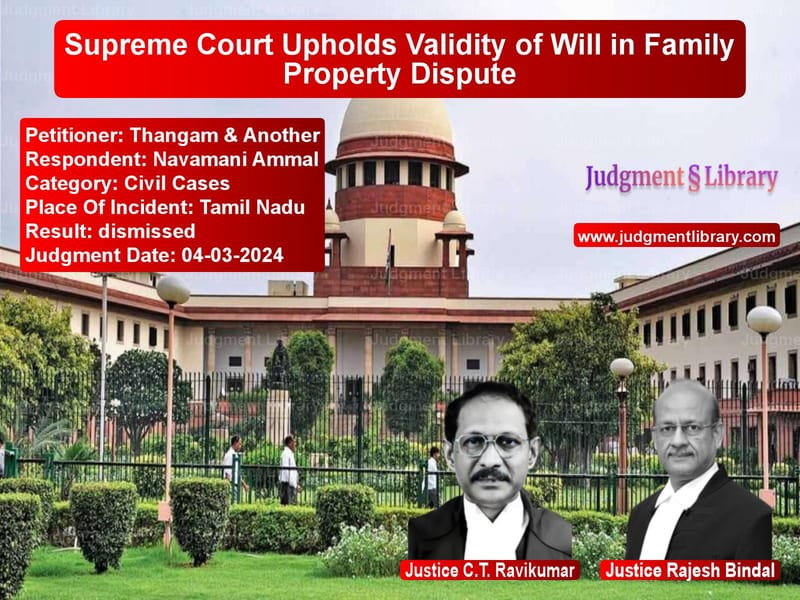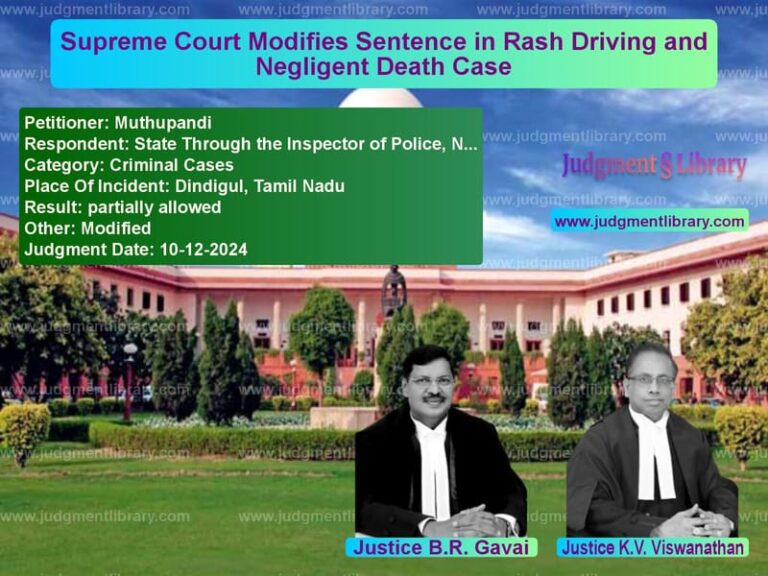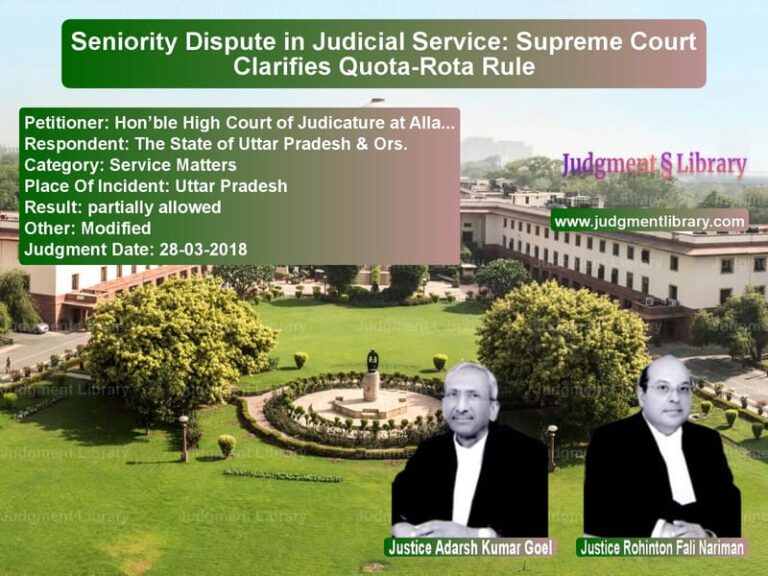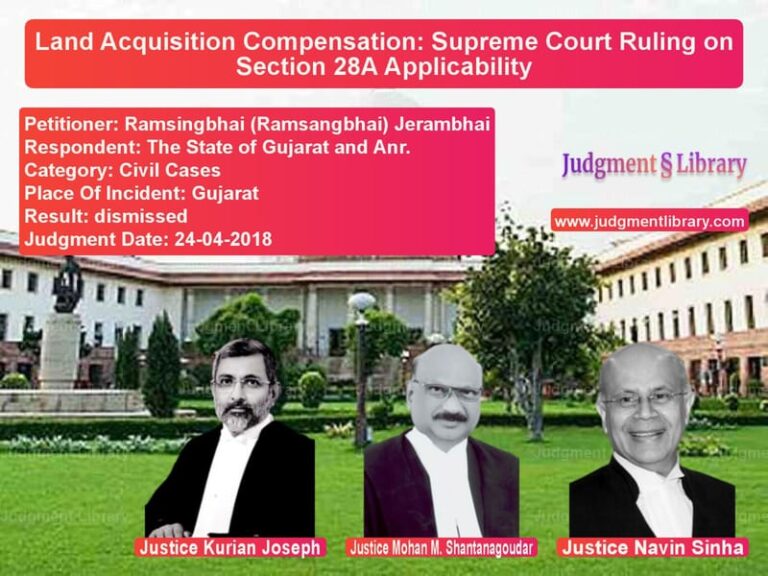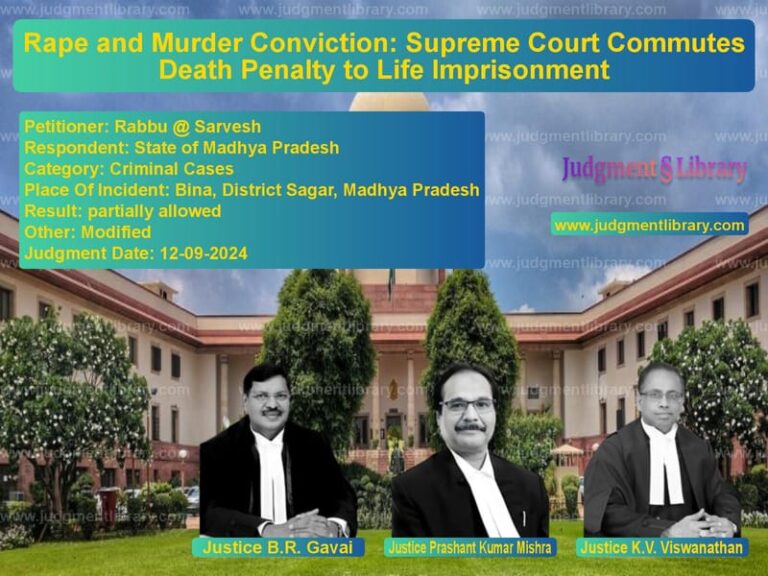Supreme Court Upholds Validity of Will in Family Property Dispute
The Supreme Court of India recently upheld the validity of a registered will in a family property dispute, rejecting allegations of suspicious circumstances. The case, Thangam & Another vs. Navamani Ammal, centered on whether a will executed by the deceased testator, Palaniandi Udyar, was genuine and legally enforceable.
The Supreme Court ruled that there were no substantial suspicious circumstances surrounding the will, and the lower appellate court had erred in rejecting its validity. The decision reinforces the principle that once a registered will is proven to be duly executed, it cannot be invalidated based on mere conjecture.
Background of the Case
The case originated from a dispute over a will executed on October 9, 1984, by Palaniandi Udyar in favor of Navamani Ammal. The appellants, Thangam (widow) and Laila (daughter), contested the will, arguing that it was surrounded by suspicious circumstances and was not executed voluntarily.
Legal Proceedings
1. Trial Court Decision
- The respondent Navamani Ammal filed a suit for declaration and injunction to enforce the will.
- The Trial Court ruled in favor of the respondent, holding that the will was genuine and had been properly executed.
2. Reversal by the First Appellate Court
- The appellants challenged the decision in the First Appellate Court, which overturned the Trial Court’s ruling.
- The appellate court found inconsistencies in witness testimonies and concluded that the will was suspicious.
3. High Court Restores the Will
- The respondent appealed to the Madras High Court, which set aside the First Appellate Court’s ruling and restored the Trial Court’s judgment.
- The High Court found no substantial suspicious circumstances to doubt the will’s authenticity.
4. Supreme Court’s Final Decision
- The appellants took the matter to the Supreme Court, arguing that the will should be declared invalid.
- The Supreme Court upheld the High Court’s decision, ruling that the will was genuine and enforceable.
Key Legal Issues Considered
1. Allegations of Suspicious Circumstances
- The appellants argued that the will was invalid due to inconsistencies in the attesting witnesses’ statements.
- They claimed that the testator was in poor health and unable to comprehend the contents of the will.
2. Absence of Mention of Legal Heirs
- The will did not mention the testator’s widow and minor daughter.
- The appellants contended that the omission of direct heirs created doubt about the testator’s intent.
3. Possession and Care of the Testator
- The respondent argued that she had taken care of the testator during his illness.
- She claimed that the appellants had abandoned him, which justified his decision to bequeath a portion of his property to her.
Supreme Court’s Observations
1. No Evidence of Undue Influence
“The execution of a will by a person in favor of any other relative always means that the testator wishes to take away some property from the normal course of inheritance. This in itself does not create suspicion.”
2. Health of the Testator
- The court noted that the testator had asthma but was otherwise in good mental health.
- Witnesses confirmed that he was aware of the will’s contents and executed it voluntarily.
3. Proper Execution of the Will
- The will was registered, which adds to its authenticity.
- Both the scribe and the attesting witnesses confirmed the testator’s intent.
4. Appellants’ Delay in Challenging the Will
- The appellants had not contested the will for over two years after the testator’s death.
- The court found that their challenge appeared to be an afterthought.
Final Verdict
The Supreme Court dismissed the appeal and upheld the High Court’s ruling in favor of Navamani Ammal.
“The appeal is dismissed. The registered will is found to be valid, and there are no substantial suspicious circumstances surrounding its execution.”
Conclusion
This judgment reaffirms key principles regarding the validity of wills:
- Registered wills carry strong legal weight – Courts will uphold them unless clear evidence of fraud or undue influence is presented.
- Suspicious circumstances must be substantial – Mere doubts or omissions are insufficient to invalidate a will.
- Beneficiaries must prove abandonment or neglect – If legal heirs challenge a will, they must show they were wrongfully excluded.
The ruling ensures that rightful beneficiaries under a validly executed will are protected, preventing undue challenges based on unsubstantiated claims.
Petitioner Name: Thangam & Another.Respondent Name: Navamani Ammal.Judgment By: Justice C.T. Ravikumar, Justice Rajesh Bindal.Place Of Incident: Tamil Nadu.Judgment Date: 04-03-2024.
Don’t miss out on the full details! Download the complete judgment in PDF format below and gain valuable insights instantly!
Download Judgment: thangam-&-another-vs-navamani-ammal-supreme-court-of-india-judgment-dated-04-03-2024.pdf
Directly Download Judgment: Directly download this Judgment
See all petitions in Succession and Wills
See all petitions in Property Disputes
See all petitions in Judgment by C.T. Ravikumar
See all petitions in Judgment by Rajesh Bindal
See all petitions in dismissed
See all petitions in supreme court of India judgments March 2024
See all petitions in 2024 judgments
See all posts in Civil Cases Category
See all allowed petitions in Civil Cases Category
See all Dismissed petitions in Civil Cases Category
See all partially allowed petitions in Civil Cases Category

